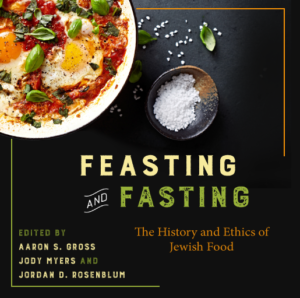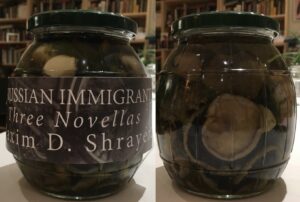
Feasting and Fasting: The History and Ethics of Jewish Food (#43)
Podcast: Play in new window | Download (Duration: 22:42 — 31.2MB) | Embed
Guest: Dr. Aaron S. Gross

I couldn’t resist searching out more information on this new book Feasting and Fasting! I hope you’ll find my conversation with Dr. Aaron S. Gross, co-editor as intriguing as I did. The book delves into Jewish food as a key component to exploring our history, culture, politics, and more. I know it’s going to be my next book purchase. And Aaron offers us a 30% discount if you order your book directly through New York University Press. It comes out in December, just in time for Hanukkah!







